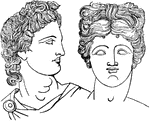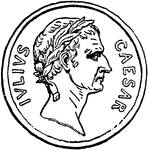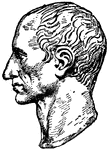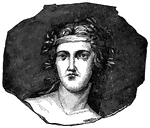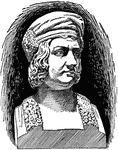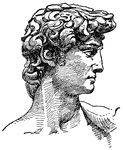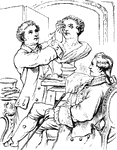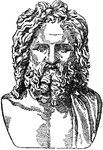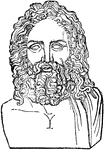Clipart tagged: ‘bust’
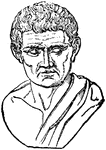
Aristotle
"Aristotle was born in 384 B.C., at Stagira, a seaport town of Chalcidice, whence he is frequeently…

Bust of Aspasia
"Pericles, after divorcing a wife with whom he had lived unhappily, took his mistress Aspasia to his…
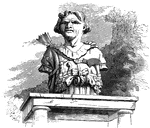
Bust of Man
A bust is a sculpted or cast representation of the upper part of the human figure, depicting a person's…
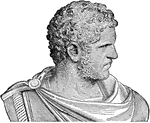
Bust of Caracalla
Caracalla (April 4, 188 – April 8, 217. Caracallus ), born Lucius Septimius Bassianus and later called…
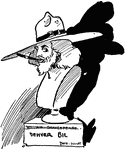
Cartoon of Bust of Altered Shakespeare
A cartoon of a bust of William Shakespeare. His name is crossed out and replaced with 'Denver Bil',…
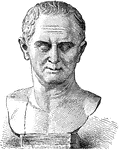
Marcus Tullius Cicero
Marcus Tullius Cicero (106-43 BC) was a Roman philosopher, statesman, and lawyer.
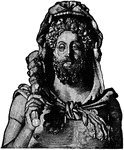
Bust of Commodus
Lucius Aurelius Commodus Antoninus (31 August 161 – 31 December 192) was a Roman Emperor who ruled…

Bust of Herodotus
"The first writer who deserves the name of a historian is Herodotus, hence called the Father of History.…

Profile Bust of Herodotus
Herodotus of Halicarnassus was a Greek historian who lived in the 5th century BC (c. 484 BC–c.…

Bust of Homer
"Of the Homeric poems the Iliad and the Odyssey were the most distinguished and have alone come down…
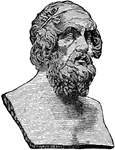
Bust of Homer
Homer is traditionally held to be the author of the ancient Greek epic poems the Iliad and the Odyssey,…

Ornate Oval Frame
This is a portrait-oriented frame featuring British coats of arms, scrollwork and symbols of art. The…

Pericles
"So long as Pericles stood at the head of Athens in time of peace, he governed it with moderation and…

Bust of Pericles
"The enormous influence which Pericles exercised for so long a period over an ingenious but fickle people…
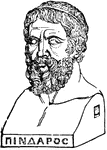
Bust of Pindar
"Pindar, though the contemporary of Simonides, was considerably his junior. He was born either at, or…
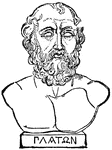
Bust of Plato
"Plato was born in Athens in 429 B.C., the year in which Pericles died. His first literary attempts…
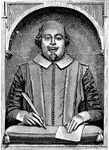
Bust of Shakespeare
The bust in the choir of Holy Trinity Church, Stratford-on-Avon. This half-length statue on his memorial…

Bust of Socrates
"This celebrated philosopher was born inthe year 468 B.C., in the immediate neighborhood of Athens.…

Modern Crouching Sphinx
The Crouching Sphinx is a modern design of the bust of a woman and the body of a lion.
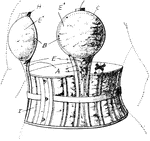
Bust Supporter
This bust supporter features a waist attachment for better comfort, and cup protection.

Bust of Thucydides
"Thucydides, the greatest of the Greek historians, was an Athenian, and was born in the year 471 B.C.…
